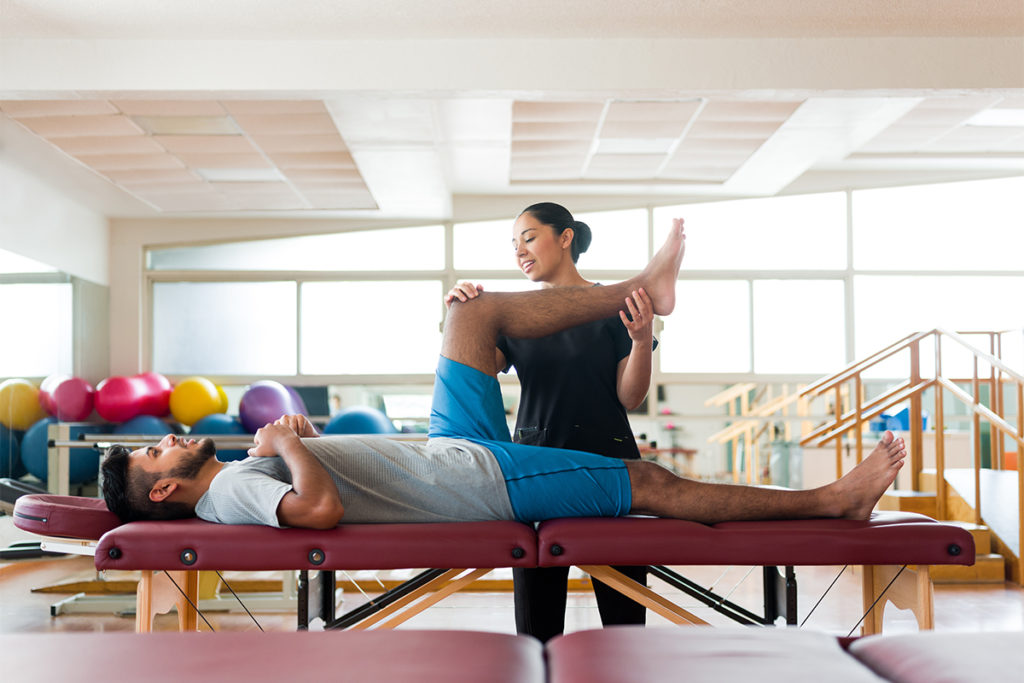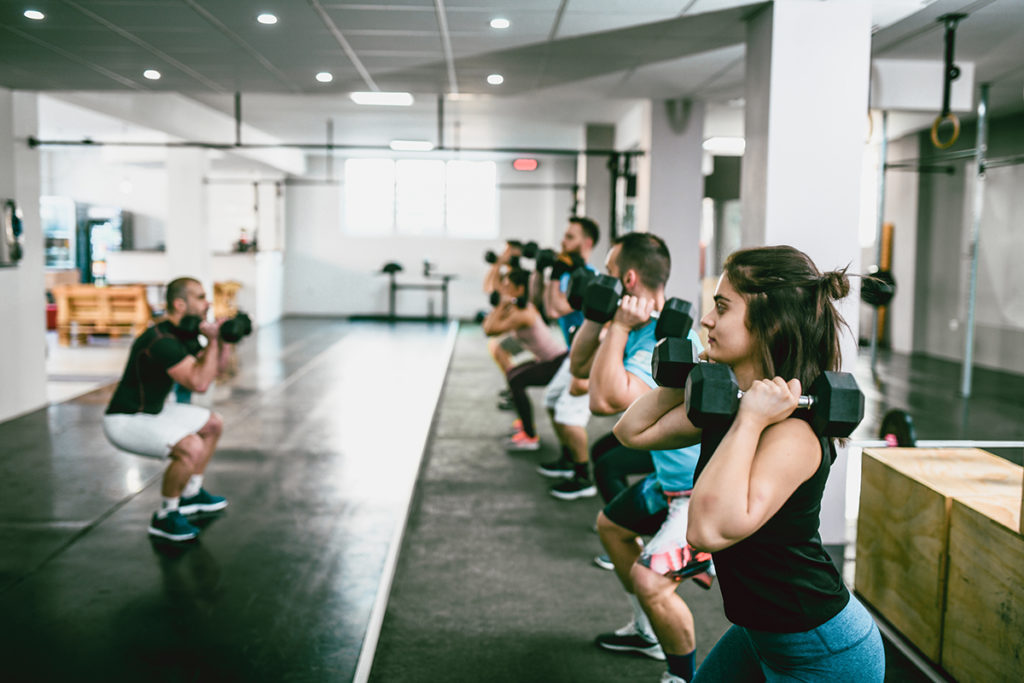Consider everything when choosing a gym
Convenience: It's crucial, but not the last word in choosing a gym
Choices, choices: There's a perfect fitness fit out there. Above, personal trainer Lauren Jones-McClain rides a stationary bike at the Pulse Fitness Club in downtown Dallas.
She started with location, location, location. Because her living situation was up in the air after moving to Texas from Northern California, she decided to look for a gym near her job in Flower Mound. She looked at three gyms. "It was $45-$50 a month, and it didn't have a lot of facilities and the equipment was out of date," Ms. Nygaard, 24, says of the first one. "It wasn't worth $50 a month."
The second club she looked at had a high enrollment fee that didn't fit her budget.
But the third club was just right – and it was offering a special deal with no enrollment and a low monthly fee.
"The Health & Athletic Center had the best equipment," says Ms. Nygaard. "It had a lot of modern technology, it was really big, had the best-looking facilities. And they didn't charge extra for yoga or Pilates. That was really a big plus, and that's hard to find. I really wanted to try yoga, but I didn't want to pay, in case I didn't like it. You can take as many classes as you want – yoga, Pilates, step kickboxing, everything."
Not only that, she says, but there are plenty of machines. "They have a lot of treadmills so even if you go at a time that's really crowded, there's always one."
And the clincher?
"I was basically sold on the personal flat-screen TVs on the cardio equipment," she says.
The careful decision-making has paid off for Ms. Nygaard. She's going to the gym regularly, taking all kinds of classes, and has lost about 15 pounds since joining.
It's a New Year's cliché to join a health club in January only to find your interest waning by March, but making smart choices when choosing a facility can help you stick to your resolution.
First of all
"Your health club should be within a two- to five-mile radius from your home or work," says Carla Sottovia, a personal trainer at the Cooper Fitness Center and IDEA's personal trainer of the year in 2005.
What's your style?
Consider what you want in a health club. A large, fancy club will have a lot of equipment, a lot of classes, perhaps a pool, racquetball courts, basketball and even a cafe. A chain of clubs is not a bad idea if you travel frequently and would like to work out in other cities. A small mom-and-pop club might suit you best if you find the big health clubs intimidating.
"Some mom-and-pop places are more on a personal level," says Randy Rasmussen, who owns a small gym, Body Tech, in Dallas. "It's almost like a family where people feel comfortable. After their workout, they might sit on the couch and just chitchat about the weather and all that."
A small gym probably won't have extensive facilities, such as a swimming pool, but it may have much the same weight and cardio equipment, just less of it. It may or may not offer classes. Mr. Rasmussen says his gym has no racquetball, pool or classes except a Saturday Pilates class.
Look at the extras: 'I was basically sold on the personal flat-screen TVs on the cardio equipment,' says Kristen Nygaard (right), who chose the Health & Athletic Center in Flower Mound.
After you've identified a few convenient clubs, visit each one.
Make sure everything in the club looks clean, that equipment is functional (out-of-order signs are a bad omen) and that the club has the equipment you want to use. One hundred state-of-the-art cardio bicycles won't do you any good if you prefer an elliptical trainer. Is the club well-ventilated, or is it sticky and warm? Also be sure to look at the pool, locker room and shower – are they clean and well-maintained? Is the music too loud for your liking? The American Council on Exercise (ACE) suggests chatting with members (without an employee present) to get their opinions. If you have any concerns at all, contact the Better Business Bureau to see if any complaints have been filed. In addition, clubs that belong to the International Health, Racquet and Sportsclub Association must follow a code of ethics. To find an IHRSA club in your area, call 1-800-228-4772 or visit www.healthclubs.com.
Make it convenient: 'Your health club should be within a two- to five-mile radius from your home or work,' says Carla Sottovia, Cooper Fitness Center personal trainer.
You should receive training on the equipment when you join a club, and the club should have employees walking the floor to answer any questions. Many clubs have personal trainers available; if that interests you, ask about their credentials.
If you have your own personal trainer, most large clubs will not allow you to work with him or her at the facility, while you may be able to do so at a smaller club. Although Body Tech has no trainers on staff, Mr. Rasmussen can help you find one. If you want to bring your own, he will want to check out the trainer's credentials. "If they do have a personal trainer and we feel like they're a pretty good person and a good trainer, they can work with that person at our gym," he says.
Got kids?
If you need child care, be sure it is offered during the hours you will be at the gym. Some places do not offer it on weekends. Ask if it costs extra (most clubs will charge, says Ms. Sottovia) and what qualifications the caregivers have. Some places may just plop your kids in front of a TV; others, such as Cooper, will use child-care specialists who keep kids active.
The dotted line
When it's time to talk money, don't get pressured by a hard sell or a one-time-take-it-or-leave-it special offer. Clubs want new members, and if they want you to join today, they're going to want you to join tomorrow, too. Consider asking for a couple of passes, so you can work out at the club before you commit to anything. If appropriate, ask about family or couples memberships, which could help you save money.
A small, privately owned gym will probably be more open to price negotiation than a larger gym. Mr. Rasmussen has cut his price for students on a budget, for example.
Some clubs require a long-term contract with monthly dues and an initiation fee. (By law, the longest contract that may be offered in Texas is five years.) Others allow you to go month by month. Understand the terms of your contract and what it includes (towels? lockers? classes?), and make sure it includes everything the sales rep has promised. If the club is not yet open, the American Council on Exercise recommends asking if fees are placed in an escrow account until the facility is officially open.
If you knuckle under to pressure and wake the next morning with buyer's remorse, Texas law gives you the right to cancel a club-membership contract without penalty within three business days of signing. If a club moves more than 10 miles from its original location, you are entitled to a refund.
If you must pay a large initiation fee, consider what you would do if the club closes down. You can check the club's registration with the Texas secretary of state's office. Some clubs are required to post a bond so that if they go under, members get their money back. Search "Registered Health Spas" at http://www.sos.state.tx.us or call 512-463-6906.
Of course, you do realize that no matter how ideal the gym you choose might be for you, it will do no good at all if you don't suit up and show up – and not just when those resolutions are still fresh on your mind.





